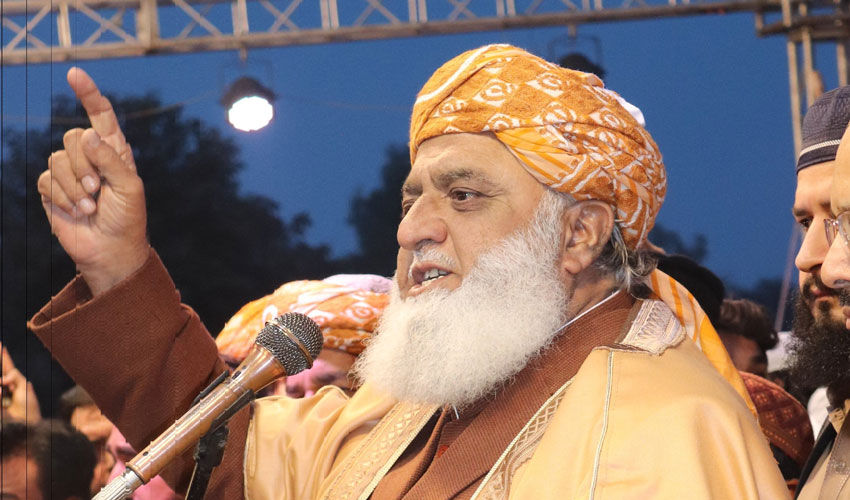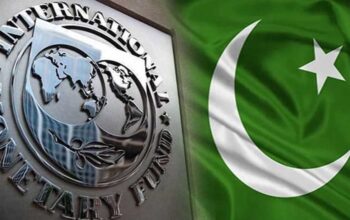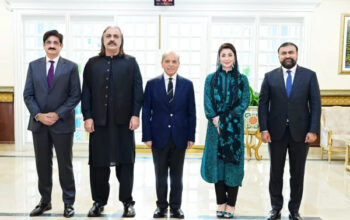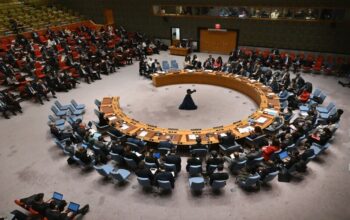By Staff Reporter
PESHAWAR: Maulana Fazlur Rehman, the leader of the far-right pro-Taliban Jamiat Ulema-i-Islam-Fazl (JUI-F) party, on Sunday rejected the recently enacted Islamabad Capital Territory Child Marriage Restraint Act 2025, announcing a series of nationwide protest rallies to oppose the legislation and raise awareness about what he described as threats to Islamic governance and national sovereignty.
The law, signed by the president on May 27 after passing through both houses of parliament, seeks to safeguard children’s rights by prohibiting marriages under the age of 18 in Islamabad.
Its supporters view it as a critical step toward eradicating child marriages in the capital territory. Yet the measure has sparked fierce opposition from religious groups, including the Council of Islamic Ideology (CII), a constitutional body tasked with advising the government on Islamic legal matters. The CII has declared that “classifying marriage under the age of 18 as rape did not conform with Islamic law,” setting the stage for a broader clash over the legislation.
Speaking at a press conference in Peshawar, Rehman lambasted the new law, arguing that it undermined Islamic principles. “Pakistan is a strange country, during the time of General Musharraf, a constitutional amendment was passed in the name of women’s rights that decriminalised fornication,” he said. “It took it out of the realm of sin. Now, they are trying to ban the marriage of people under 18. The CII has already rejected this, and all ulemas and their parties have agreed that it contradicts the Quran and Sunnah.”
Fazl expressed dismay over what he sees as a pattern of constitutional overreach, stating, “Despite constitutional guarantees, the Constitution was being trampled.” He accused the law of making “fornication easier while making legitimate marriages difficult,” a charge that reflects the deep divide between religious conservatives and advocates of secular reform in Pakistan.
To mobilise opposition, the JUI-F chief announced that his party would hold protest rallies across the country, culminating in a large conference in Hazara Division in Khyber Pakhtunkhwa on June 29. “We will stage rallies, but they won’t focus on one subject, like Al-Aqsa Mosque,” he explained. “Now, we will host rallies to create awareness about national sovereignty and Islamic governance.”
“God willing, we will present our stance to the world freely. Islam is a faith that moves with the world and can be beneficial.”
The controversy over the 2025 act reflects a long-standing struggle in Pakistan to address underage marriages, which remain prevalent in some regions, particularly rural areas where poverty and limited access to education persist. A 2019 World Health Organization report found that approximately 21 percent of girls in Pakistan are married before their 18th birthday, a statistic that has fueled calls for legislative action.
Efforts to curb the practice have met with mixed success. In 2019, the Senate passed the Child Marriage Restraint (Amendment) Bill, a measure proposed by Pakistan Peoples Party (PPP) Senator Sherry Rehman to set the national minimum age of marriage at 18. The JUI-F opposed that bill as well, labeling it “contradictory to Islamic principles” and urging its referral to the CII.
It ultimately stalled in the National Assembly and failed to become law. Similarly, the Khyber Pakhtunkhwa Child Marriage Restraint Bill, introduced in 2021 by PPP lawmaker Nighat Orakzai, aimed to ban marriages under 18 but did not succeed. In contrast, Sindh province has enforced the Sindh Child Marriage Act since 2013, marking a rare regional victory for advocates of child protection.
The debate over child marriage in Pakistan often pits secular reformers against religious conservatives, a tension that Maulana Rehman’s latest campaign brings into sharp relief. For proponents, the Islamabad law represents a vital safeguard for vulnerable children; for critics like Fazl, it is an affront to religious tradition and constitutional integrity.
Copyright © 2021 Independent Pakistan | All rights reserved




